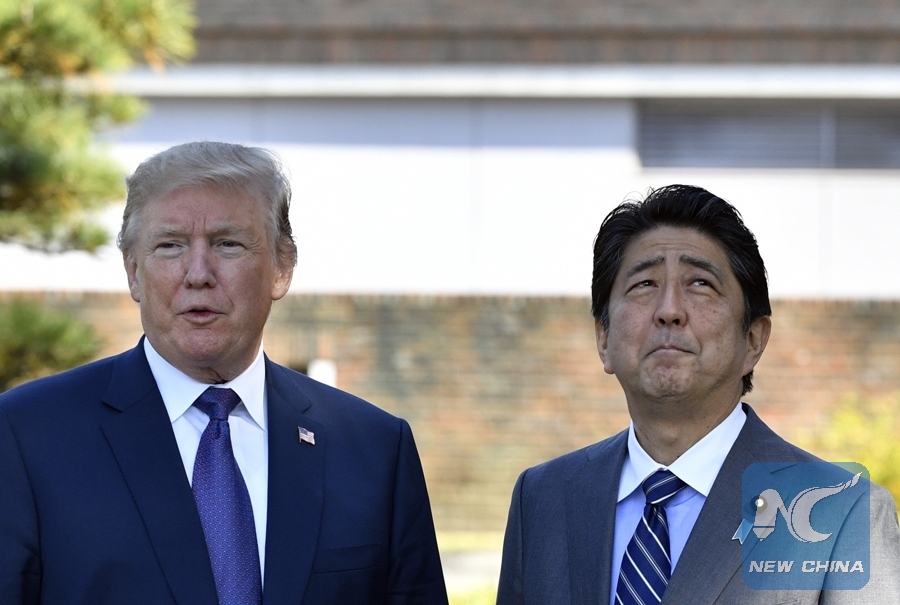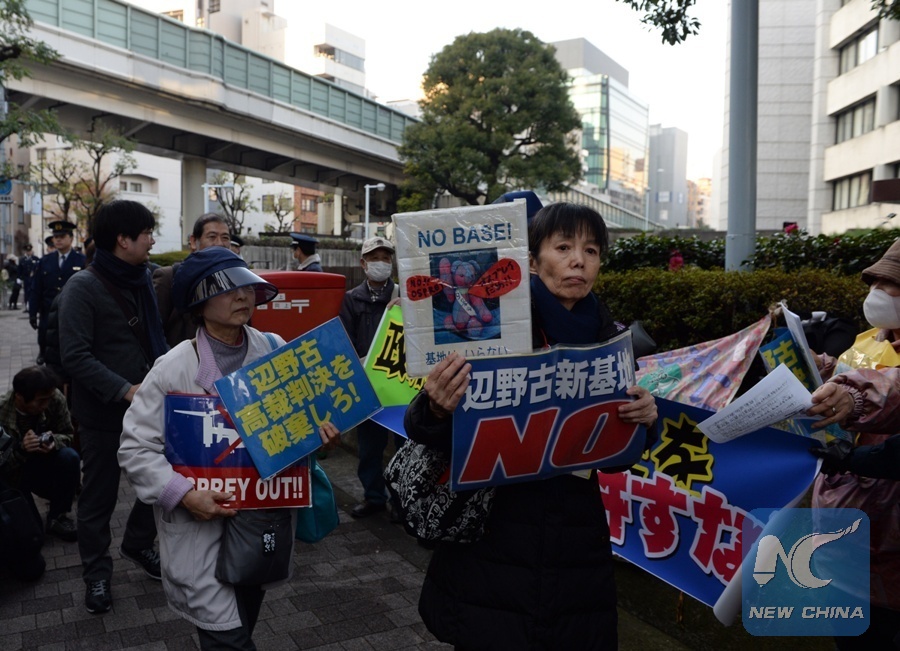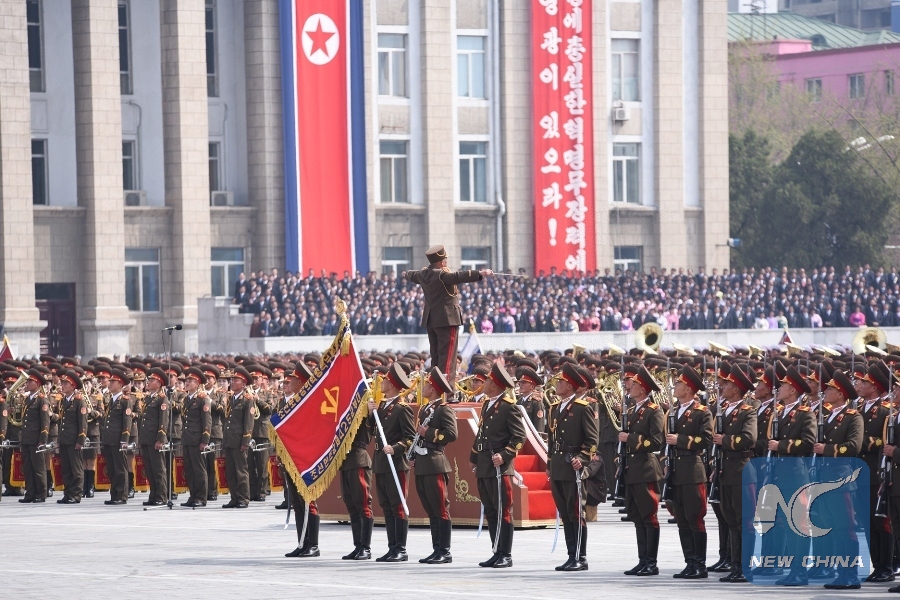
U.S. President Donald Trump (L) meets with Japanese Prime Minister Shinzo Abe upon his arrival at the Kasumigaseki Country Club in Kawagoe, near Tokyo, Japan, Nov. 5, 2017. (Xinhua)
WASHINGTON, Feb. 2 (Xinhua) -- U.S. President Donald Trump on Friday discussed over phone with Japanese Prime Minister Shinzo Abe the situation on the Korean Peninsula and the relocation of a U.S. base in Japan.
The White House said in a statement that Trump and Abe also discussed the pending relocation of a U.S. Marine base on Okinawa and ways to strengthen Japan's defense capabilities including an expanded missile defense system.

People hold placards against the decision from the top court outside Japan's top court building in Tokyo, Japan, Dec. 20, 2016. Japan's top court on Tuesday upheld a lower court's ruling in favor of the central government's plan to relocate a U.S. Marine Corps air base within the island prefecture of Okinawa, despite local people's demands that the U.S. base be relocated outside the prefecture. (Xinhua/Ma Ping)
The situation on the Korean Peninsula remained volatile throughout 2017, as the DPRK conducted its sixth nuclear test and the United States conducted large-scale military drills with the Republic of Korea (ROK), sending aircraft carrier groups, strategic bombers, nuclear submarines and other strategic assets there.
Washington has also maintained its so-called "maximum pressure" against the DPRK, yet so far the strategy has not achieved its expected goals.

Soldiers attend a military parade in central Pyongyang, April 15, 2017. The Democratic People's Republic of Korea (DPRK) showcased its military muscles by parading all of its most-advanced ballistic and tactic missiles, including a submarine-launched ballistic missile which could strike targets 1000 km away. (Xinhua/Cheng Dayu)
Ri Yong Ho, Foreign Minister of the DPRK, has accused the United States of undermining inter-Korean reconciliation process and aggravating the situation on the Korean Peninsula on Wednesday in a letter sent to UN Secretary-General Antonio Guterres.
The U.S. authorities are "seeking to intentionally aggravate the situation by introducing the strategic assets including nuclear powered aircraft carrier strike groups into the vicinity of the Korean peninsula at a time when north and south of Korea are charting a course of peace together," Ri said in the letter.

